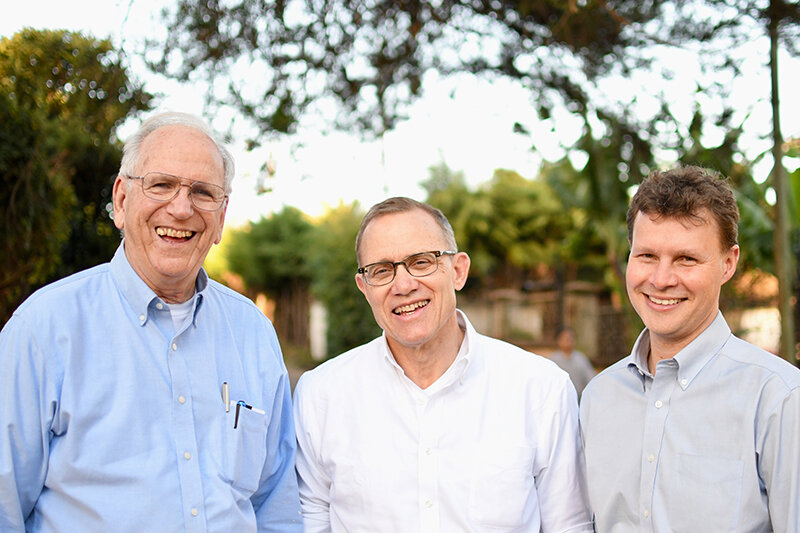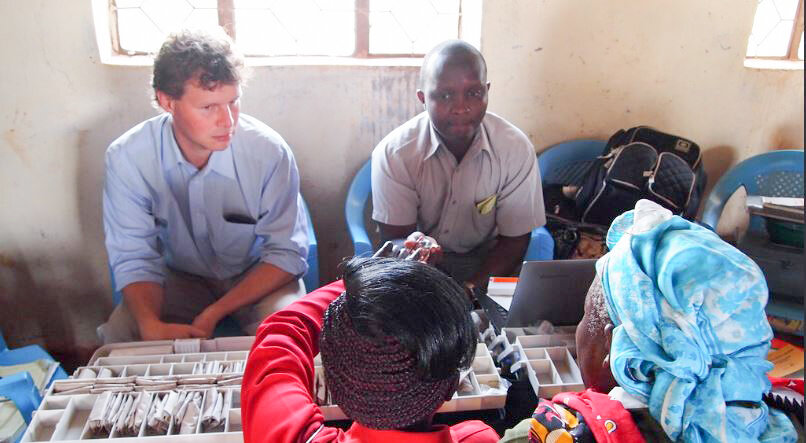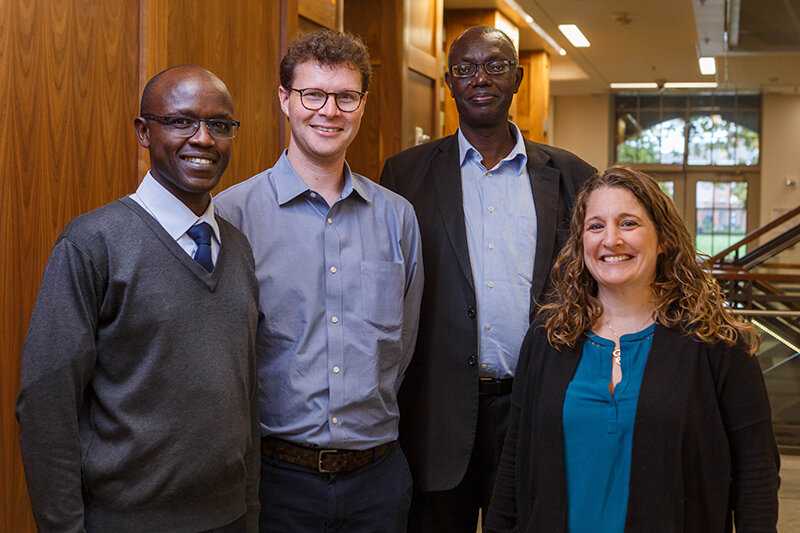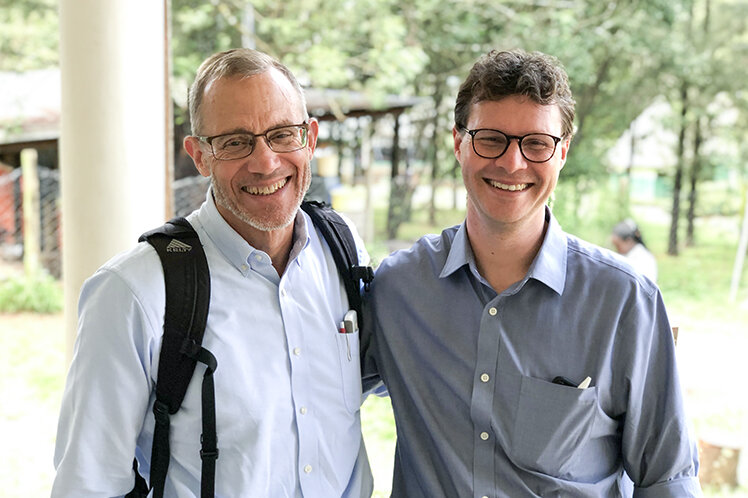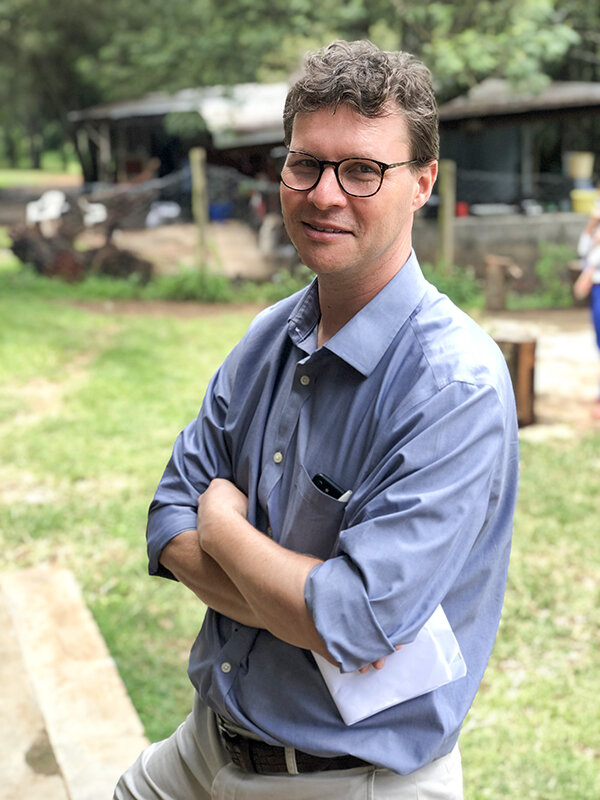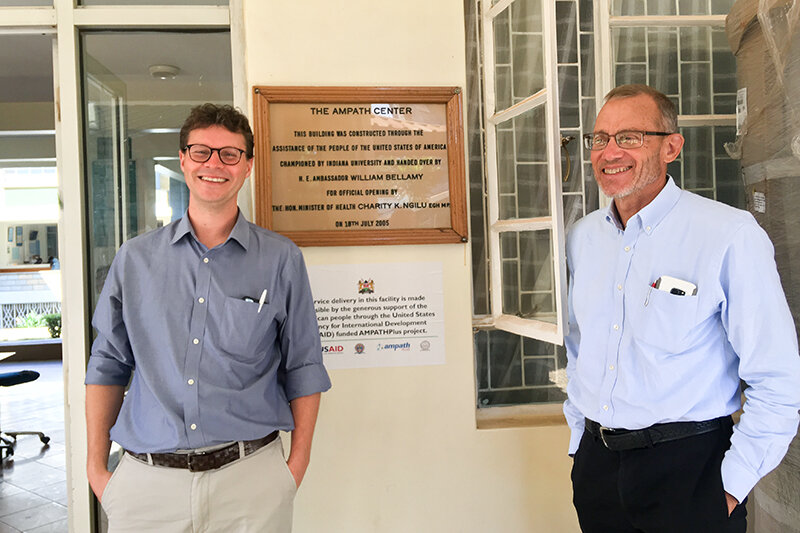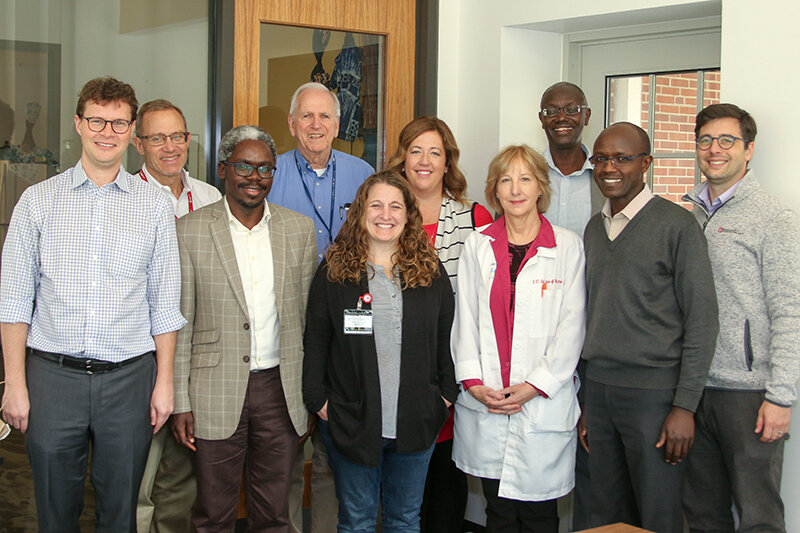People of AMPATH: Adrian Gardner, AMPATH Consortium Executive Director and Director of the IU Center for Global Health
Adrian Gardner, MD, MPH, becomes the new director of the IU Center for Global Health, executive director of the AMPATH Consortium of North American academic health centers and associate dean for global health at Indiana University School of Medicine on February 1. AMPATH began 30 years ago as a partnership between Indiana University and Moi University and Moi Teaching and Referral Hospital in Kenya and has grown to include a dozen leading academic health centers in North America. In addition to creating one of the world’s largest and most successful HIV care and control programs, AMPATH is working with the Government of Kenya and Kenyan Ministry of Health to create a sustainable health care system in western Kenya including treatment for non-communicable diseases such as hypertension and diabetes as well as various types of cancers and other chronic diseases.
Adrian Gardner, MD, MPH
What is your background in global health?
I was born in Scotland and lived in France for the first six years of my life. Even at this early age, having an international experience led to a desire to explore the world. I completed most of my education in the US, and ultimately spent eight years at Brown University earning both my undergraduate and medical degrees. In 2001, I went to Kenya for the first time as a student at Brown. This was around the time that the HIV program was first being conceived by Joe Mamlin and that experience had a huge impact on my life and career plans. I became very interested in HIV and tuberculosis and after returning from Kenya, I completed my 4th year longitudinal clinic in the TB clinic in Rhode Island with Dr. Jane Carter. During post-graduate training, I sought every opportunity to return to Kenya and served as the AMPATH Team Leader in 2006-07, and then returned to Boston to complete a fellowship in Infectious Diseases. I returned to AMPATH in Kenya full-time in 2012 with my wife, Jessica. Since that time, our family has grown to include three children who are very much a part of the larger “AMPATH and IU family.”
What excites you about the work you and your colleagues are doing in Kenya?
What initially appealed to me about AMPATH was the opportunity to personally interact with some of the world’s most vulnerable citizens and to be able to impact individual lives with relatively limited resources. That personal connection is still very important to me, but my interest has evolved into building a health system that is broader than the HIV program and that can eventually be sustained by the Kenyan government and domestic health funding. AMPATH is well-positioned to demonstrate this model of population health on the ground, not only because of our successful HIV effort, but also because we have the trust of the community. Patients know that the clinicians and facilities will be there when they are needed.
We also have to demonstrate to our funders and donors that their interest (HIV care, diabetes treatment and prevention, maternal child health, etc.) will ultimately be more successfully addressed as part of a broader health system. If we don’t provide economic empowerment to patients and build out the system, then individual efforts are not going to be sustainable for the long-term.
Clinical interaction with patients is still very important to me, and I have continued to run a weekly HIV resistance clinic at Moi Teaching and Referral Hospital and to round on the wards both in Kenya and Indianapolis. Many of the solutions we have created in partnership with our Kenyan colleagues are very applicable to resource-limited situations in the U.S. as well.
What makes AMPATH special?
AMPATH’s philosophy of leading with care is one of the things that makes us unique among other institutions and agencies doing this type of work. We look at the needs of the people we are trying to serve and create programs that are responsive to community needs rather than responding to the next grant application that comes down the line. We think about those needs in 20, 30 and 40 year increments.
Part of that philosophy is the belief that an academic health center better serves its population because of the health system’s connection to an academic institution. Because of this, we have a commitment to continue to build the capacity of the Kenyan Ministry of Health care system to provide specialty and sub-specialty care and build the capacity of Moi University School of Medicine to train professionals who will eventually take on leadership roles in the country.
The unique collaboration between North American academic institutions as part of the AMPATH consortium is also a vital part of AMPATH’s success. The involvement of the consortium members is truly complementary, with every academic institution bringing their own expertise and perspective. No single institution can bring that and it translates to a much more comprehensive resource.
Why is AMPATH involved in economic empowerment?
We recognize the importance of addressing the social determinants of health. If a farmer with diabetes can’t afford his medication because his chickens aren’t doing well, then part of providing care is investing in the well-being of his chickens.
Creating relationships that help farmers improve their crop yields and finding resources to establish a legal aid center for patients who face legal challenges because of illness or death are two other examples of our holistic approach to wellness.
We are able to provide better care when we are able to see a patient’s whole world.


